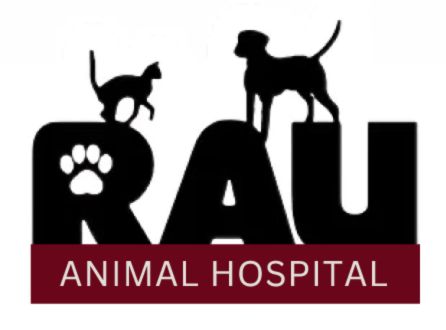
Why Should I Microchip My Dog?
Your canine companion is a loyal, loving, and irreplaceable friend who may have an urge to wander and explore and runs the risk of getting lost. Unfortunately, it is all too common for dogs to lose their way back home and end up in a shelter. It is easy to think that it won't happen, but the reality is that a staggering number of dogs are lost in the shelter system each year because they lack reliable means of identification once they are found. At the Rau Animal Hospital, we feel that dogs are part of the family, yours and ours, and that is why we recommend every dog receives an identification microchip.
Traditional dog ID tags that hang from a collar are a common sense line of defense, however, dog ID tags can easily become separated from your dog. In cases of dog theft, a dog ID tag is the first thing a thief will discard. However, a microchip for dogs is a permanent solution that ensures your dog can be properly identified by a veterinarian or animal shelter and reunited with you.
What Is A Dog Microchip?
A dog microchip comes preloaded in a sterile applicator and is injected under the loose skin between the shoulder blades. Although there is no universally agreed upon location, a dog microchip is usually implanted between the shoulder blades. At approximately 12mm long, it is about the same size as a grain of rice. When performed by a veterinary professional, implanting a dog microchip takes a few seconds and is relatively painless. Once the microchip is implanted under the skin, it will remain for the entirety of your dog's lifetime. It is important to understand that a dog microchip is not a GPS device providing real-time tracking capabilities. Rather, a dog microchip is a Radio Frequency Identification (RFID) device.
A microchip for dogs hurts about as much as having blood drawn. The needle required for the injection causes a pinch during dog microchipping procedures. Because it is only a momentary injection, no local or general anesthetic is required.
Should Microchipping Dogs Replace Dog ID Tags?
Dog ID tags are the first line of defense in locating and identifying a lost animal. However, microchipping dogs is the second and in some ways more important line of defense for your dog. This is because microchipping dogs ensures that your pet's identification is never lost, stolen, removed, or compromised in any way. If your dog becomes lost and is found by someone else, the pet can be scanned by a nearby veterinarian or shelter to see if the pet is microchipped.
Will My Personal Information Be Accessible Through The Dog Microchip?
A dog microchip cannot compromise your personal privacy. When the RFID scanner picks up the chip, the chip only provides an identification number that correlates to the chip's manufacturer. That number is called into the pet microchip lookup and recovery service, and you will be contacted by that service using the contact information on file. This is why it is essential to make sure your registration information is accurate.
How Can I Schedule An Appointment To Get A Dog Microchip?
If you are ready to schedule an appointment for dog microchipping services, please contact us today. Our staff would be happy to help you register your beloved canine friend into the pet recovery service database.
